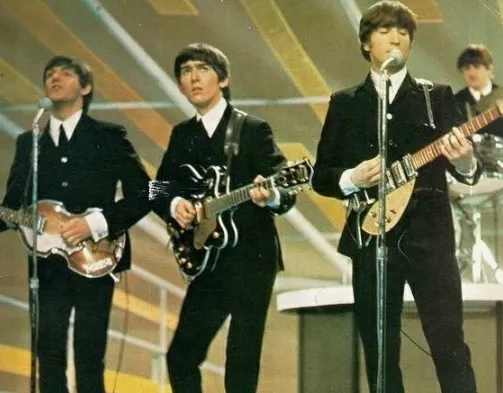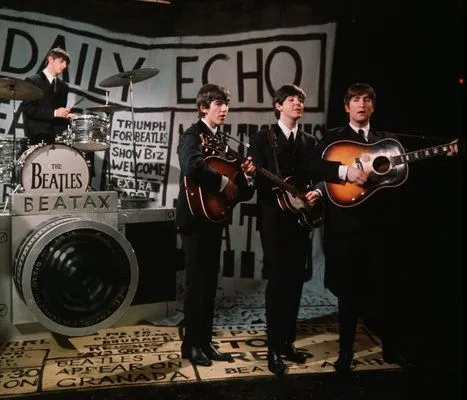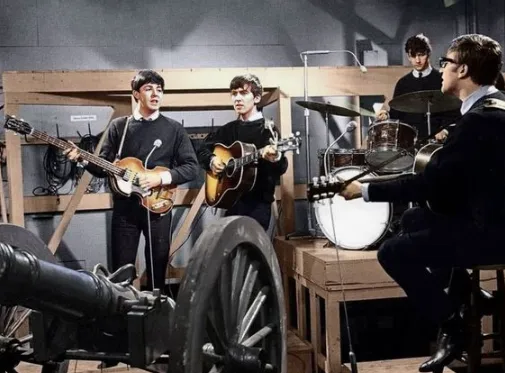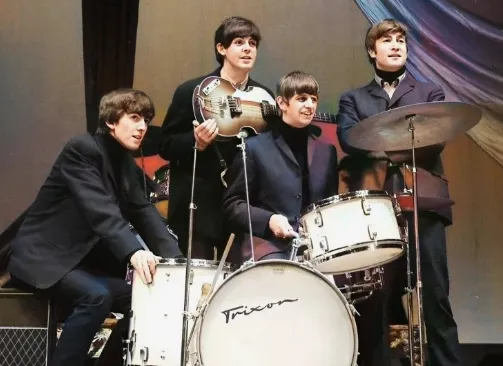In 1966, Paul McCartney and Mal Evans found themselves immersed in a whirlwind of cultural exchange and musical adventure during The Beatles' first and only tour of Japan. This journey was significant for both the band and the Japanese fans, as it represented a momentous occasion in the history of rock 'n' roll. The tour, albeit brief, left a lasting impact on the participants and the music world at large.

The Beatles arrived in Tokyo on June 29, 1966, amidst a flurry of excitement and anticipation. Japan was in the throes of Beatlemania, and the band's arrival was met with an overwhelming response from fans. Paul McCartney, as the bassist and one of the primary songwriters for The Beatles, was at the forefront of this enthusiastic reception. Accompanying him was Mal Evans, the band's loyal road manager and confidant. Evans had been a key figure behind the scenes, ensuring that the logistics of the tour ran smoothly and providing essential support to the band members.

During their stay in Japan, The Beatles were scheduled to perform a series of concerts at the Budokan, a venue traditionally reserved for martial arts events. This choice of venue was symbolic of the changing cultural landscape, as rock 'n' roll began to gain acceptance in a society steeped in tradition. The concerts at the Budokan were groundbreaking, marking one of the first times that a Western rock band performed in such a prestigious venue in Japan.

Paul McCartney, known for his boundless energy and charisma, was particularly excited about exploring Japanese culture. Despite the tight security and rigorous schedule, he managed to experience some of the country's unique offerings. McCartney's curiosity and open-mindedness led him to appreciate the distinct traditions and aesthetics of Japan. From the intricate beauty of Japanese gardens to the rich flavors of local cuisine, he embraced the opportunity to immerse himself in a different world.

Mal Evans played an essential role in facilitating these experiences for McCartney and the rest of the band. As a trusted aide, Evans was responsible for coordinating logistics, ensuring the safety of the band members, and managing interactions with the local press and fans. His efforts helped to create a conducive environment for The Beatles to focus on their performances and enjoy their time in Japan.

The concerts themselves were nothing short of spectacular. The Beatles played a mix of their biggest hits, thrilling the audience with their electrifying performances. Paul McCartney's vocals and bass lines were as dynamic as ever, captivating the Japanese fans who had long admired the band from afar. The Budokan concerts were a testament to The Beatles' universal appeal, transcending language barriers and cultural differences to connect with people on a profound level.
However, the tour was not without its challenges. The Beatles faced intense scrutiny from the media and were often confined to their hotel rooms due to security concerns. Despite these limitations, Paul McCartney's enthusiasm remained undiminished. He took every opportunity to engage with the local culture, whether it was through impromptu jam sessions with Japanese musicians or exploring the vibrant streets of Tokyo with Mal Evans by his side.

Mal Evans' presence was a stabilizing force throughout the tour. His calm demeanor and unwavering dedication provided a sense of security for the band members, allowing them to navigate the pressures of their fame with relative ease. Evans' role extended beyond that of a mere road manager; he was a friend and confidant to The Beatles, offering support and companionship during their most challenging moments.
The 1966 tour of Japan was a significant chapter in the history of The Beatles, highlighting the global reach and influence of their music. For Paul McCartney, it was an opportunity to broaden his horizons and connect with a new audience. His interactions with Japanese culture left a lasting impression, influencing his artistic sensibilities in subtle ways. The experience of performing at the Budokan became a cherished memory, reflecting the power of music to bridge cultural divides and bring people together.

In retrospect, the tour underscored the importance of figures like Mal Evans, whose behind-the-scenes contributions were crucial to the success of The Beatles. Evans' dedication and hard work ensured that the band's journey through Japan was both memorable and impactful. The bond between Paul McCartney and Mal Evans exemplified the camaraderie and mutual support that were essential to The Beatles' enduring legacy.

The 1966 tour of Japan remains a poignant reminder of a time when music transcended boundaries and brought joy to millions. For Paul McCartney and Mal Evans, it was an adventure filled with unforgettable moments and a testament to the enduring power of friendship and collaboration.



